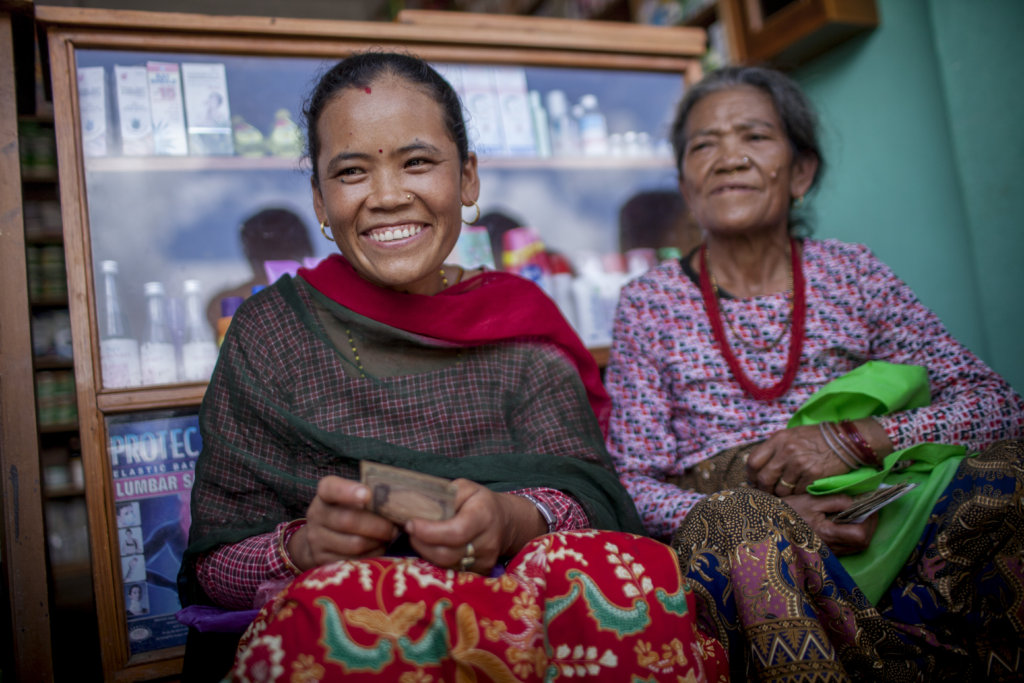By Christy Delafield | Senior Communications Officer
Access to financial services impacts disaster preparedness
Portland, Ore. - Nepal must build a more inclusive society, increase government accountability and build stronger financial support mechanisms in order to improve recovery efforts for future natural disasters, according to research conducted by the global organization Mercy Corps. Drawing upon lessons learned from this year’s deadly earthquake, the organization illuminates key areas in which change will be needed to make Nepal more resilient to future natural disasters.
“Nepal is very vulnerable to all types of natural disasters, including landslides and earthquakes. Mercy Corps sought to understand which factors hold the greatest promise for people to be resilient to similar events in the future, and what we could do to speed recovery,” says Olga Petryniak, Director of Regional Resilience Initiatives for Mercy Corps’ South and East Asia programs. “Each crisis may require a unique solution, but we can identify more specifically what people can do to help nations like Nepal bounce back.”
In its new report What Next For Nepal? Evidence of What Matters for Building Resilience After the Gorkha Earthquake, Mercy Corps recommends changes in several areas that are crucial contributors to resilience:
1. Disaster preparedness and response: Build greater preparedness on a community- and household-level, which will result in better accountability and faster response.
2. Social identity and networks: Because caste and gender strongly influence post-quake welfare, actively contribute to the strengthening of supportive and inclusive networks.
3. Financial services: Seek ways to establish relationships between financial service providers and households that will result in appropriate savings and credit resources.
4. Economic opportunities: Provide cash to those affected by a disaster to quickly restore markets and support livelihoods.
Mercy Corps surveyed nearly 1,200 households in Nepal 10 weeks after April’s 7.8 magnitude earthquake. The quake killed more than 9,000 people, destroyed a half-million homes and displaced some 2.8 million residents.
A nation in transition, Nepal remains one of the poorest countries in the world. Read or download the full report.
Links:
Project reports on GlobalGiving are posted directly to globalgiving.org by Project Leaders as they are completed, generally every 3-4 months. To protect the integrity of these documents, GlobalGiving does not alter them; therefore you may find some language or formatting issues.
If you donate to this project or have donated to this project, you can receive an email when this project posts a report. You can also subscribe for reports without donating.
